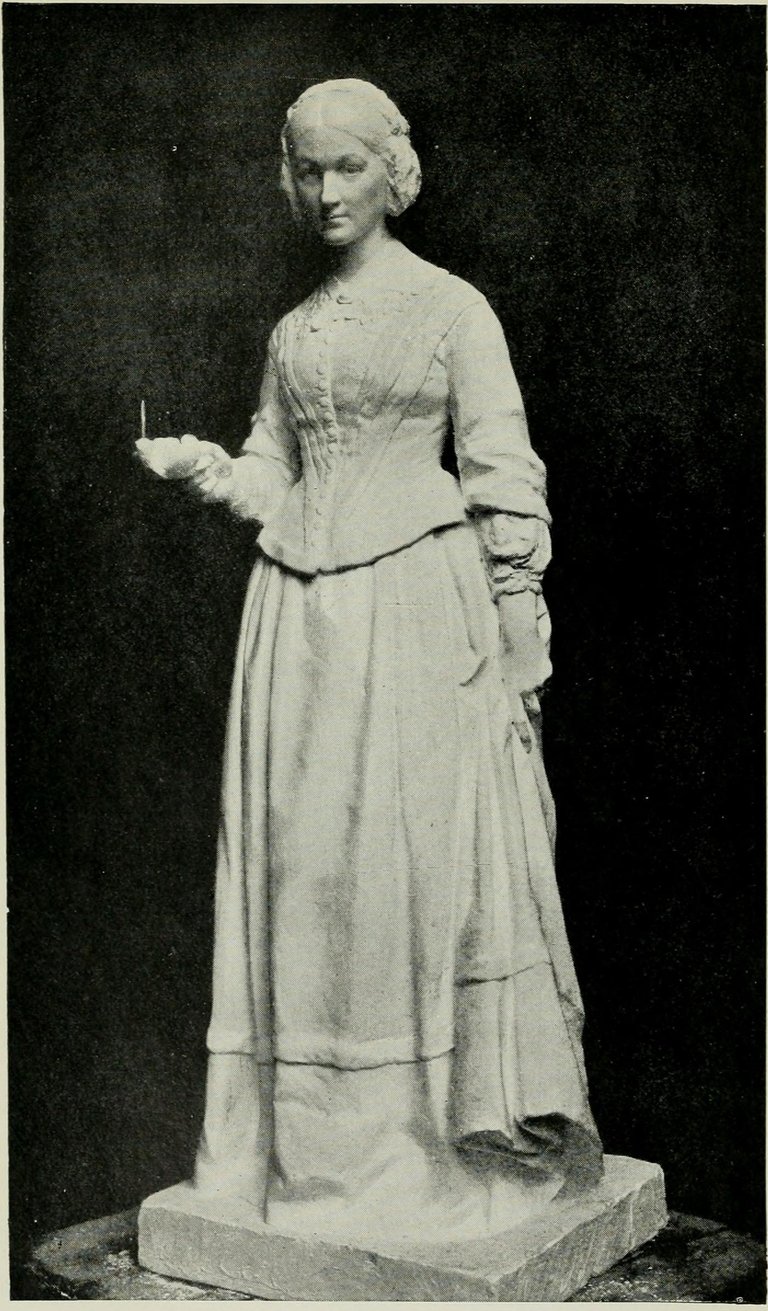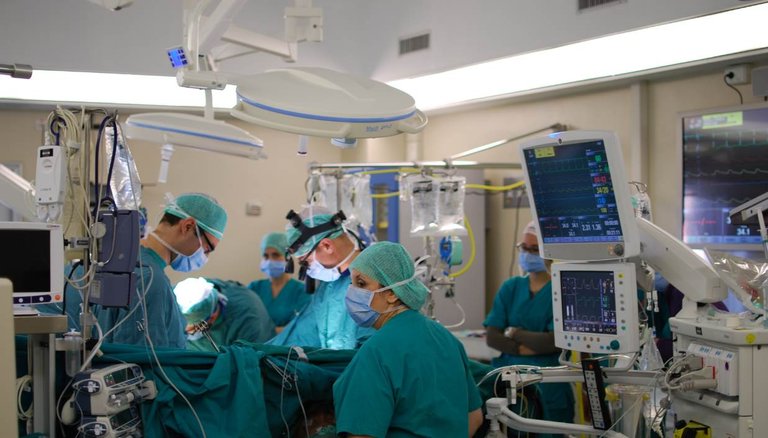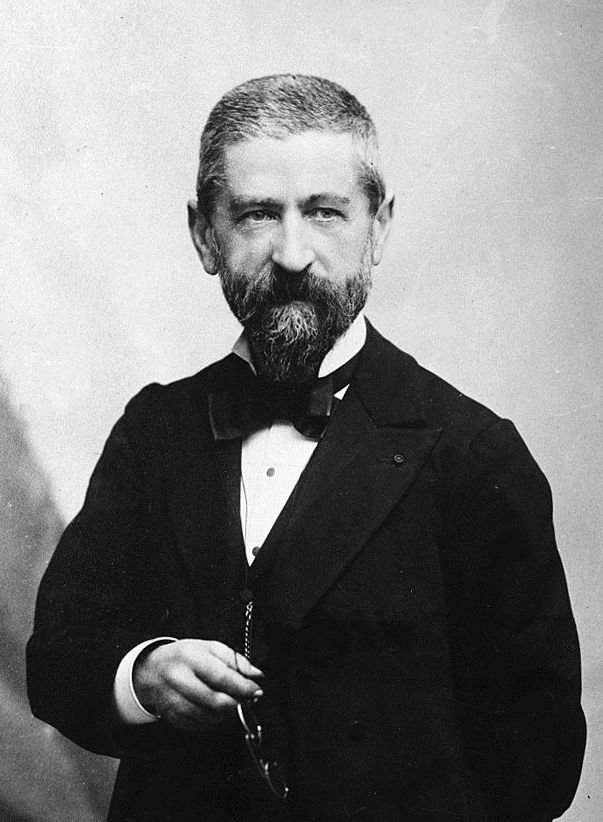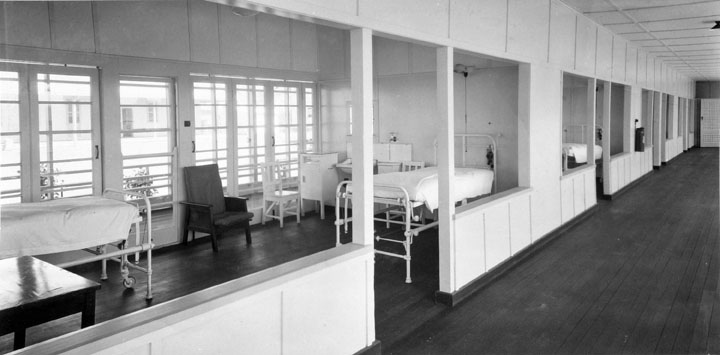Today's Hospitals Can Learn From Florence Nightingale
"Unnecessary noise is the most cruel absence of care that can be inflicted on sick or well." Florence Nightingale, 1858. Nightingale wrote these words in her seminal book, Notes on Nursing, and yet today a visit to most hospital wards would reveal that noise is everywhere.

Florence Nightingale, author Matheson Annie. Public domain
Nightingale is famous for having treated the wounded at Scutari during the Crimean War. She was given the nickname "Lady with the Lamp" by the patients there. However, her more enduring contribution to society and to healthcare in particular, was her influence on nursing as a profession and on hospital reform. Her evidence-based recommendations were used to reform St. Thomas Hospital and military hospitals in the UK.
Today's modern, technologically advanced hospitals would do well to look back and take a page (or several pages) from Nightingale's book. Her ideas about sanitation, noise, nutrition, sunlight, fresh air and overall patient comfort revolutionized hospital care.
Contemporary studies on 'noise pollution' in hospitals support Nightingale's position. The studies reveal that hospital noise has negative effects on patient outcome. The effects, "include sleep disturbances, such as reduction of sleep depth, continuity, or duration; cardiovascular response, wound healing, and pain management".
While some studies are inconclusive on the effects of noise on patient health and recovery, one effect is irrefutable: Current noise levels in most hospitals interfere with the sleep cycle. A 2012 article in the Journal of Communication describes several studies that look at noise in hospitals and the effects on sleep. In each instance, increase in noise resulted in interrupted sleep. One study described in the article showed that "respiratory activity increased after an acoustic stimulation that was independent of general electrocortical arousal". Another study, performed in a sleep laboratory but simulating hospital noises, showed that noise acts as a "suppressor" to REM.

Cardiac Surgery OR Theater. Author Pfree2014. Used under CC 4.0 International license
Noise and Cardiovascular Effects
In 2010, the journal Clinics from Sao Paolo Brazil, reported that noise levels in the cardiac ACU reached between 59.0 and 60.8 decibels. At this level, the noise exposure "was significantly associated with both heart rate and blood pressure".
So how likely are we to encounter high noise decibels in an average hospital stay? A 2023 article published by the AAMC (American Association of Medical Colleges) reported that survey of 33 different studies on hospital noise had an alarming conclusion: "indoor noise levels ranging from 37-88.6 dB(A) during the day and 38.7-68.8 dB(A) in the evening." The survey covered hospitals around the world, and noise levels were measured in different areas of the hospital.
An astonishing finding was that in one section of the hospitals surveyed, maxillofacial ORs, noise levels exceeded 115 decibels. These high noise levels affect not only patients, but staff. In one study that looked at the effect of noise levels on nurses in ICU, the finding was that high decibel levels increased nurse fatigue and anxiety. Nurses fatigued and anxious are not the optimal caretakers for critically ill patients.
"Who has not observed the purifying effect of... direct sunlight, upon the air of a room?" Florence Nightingale, from her book Florence Nightingale's Notes on Nursing. Nightingale goes on to say in her book that the sick, "should be able, without raising themselves or turning in bed, to see out of window from their beds, to see sky and sun-light at least".
If we reflect on a modern hospital room, in the typical shared room, there is one window, possibly facing a parking lot. There are at least two beds and only one is near a window. Sunlight does not pour in. The sky is rarely visible. Does it matter? Was Nightingale on to something?

Emile Duclaux, 1900s. One of the early scientists who noted the germicidal character of sunlight. From Wikipedia"...in 1885, (he)identified variations in sunlight sensitivity among different bacterial species". Picture author unknown.Public domain
A 2020 article in Scientific American addresses Nightingale's belief in the benefits of sunshine. The article refers to studies that show, "Patients in rooms with daylight and views of the outdoors have quicker recovery times and need fewer painkillers". Sunlight lowers blood pressure, slows down the heart rate, even reduces the presence of viruses and bacteria.
Another study looked at patient recovery in ICU units. A 2018 article in the International Journal of Gerontology reports that, "patients admitted to window rooms had shorter ICU stays than those admitted to no-window rooms (4.8 days vs 5.8 days, p = 0.045)". This study compared outcomes for patients with similar clinical profiles. The study cohort was 281 critically ill patients, 126 with windows and 155 without windows.
It's true that there is plenty of light in most hospital rooms--artificial light. There is so much light that it can be upsetting. An article in the Boston Medical Journal (2019) addresses the widespread use of blue-wavelength lighting in hospitals, especially overnight. This type of lighting, the article explains, "can create unwanted circadian disruption in patients when exposed at night." This disruption brings about a loss of sleep, and the article asserts, there is a "growing body of evidence regarding the effects of poor sleep on health outcomes..."
"Cleanliness and fresh air from open windows, with unremitting attention to the patient, are the only defence a true nurse either asks or needs." Looking at a modern hospital room, how much fresh air is there? My recollection, from my own experience, is that fresh air is not provided. Does it matter?

Tuberculosis Sanatorium, Kenmore, Brisbane, 1946.Queensland State Archives, Digital Image ID 2730. Public domain
In 2019 The Journal of Hospital Infection looked at this precise issue. In the journal article, something called the Open Air Factor, OAF, was addressed. It was reported that "outdoor air (was) far more lethal" to airborne pathogens than indoor air. This finding was born out in tuberculosis wards. The old fashioned wards with wide open windows showed a lower transmission rate of the disease than modern wards without those windows. This effect on transmission was also observed in wards that accommodated SARS-19 patients.
Another article (2022), published in the journal Cureus, reported the germicidal properties of open air. This article looked at how, historically, the properties of open air have been used to good effect. OAF was used during WWI to aid in healing of wounded soldiers. It was used during the influenza pandemic of that period. It has been applied to e.coli and its efficacy in killing that bacterium has been confirmed by recent studies. And, of course, as previously mentioned in this blog, it was efficacious in reducing transmission of tuberculosis.
Several sources suggest that modern ventilation systems can compensate for the loss of fresh air under certain conditions. Ideally, "...the minimum rate which fully preserved the OAF's toxicity in a cube and a cuboid container was 30–36 air changes per hour (ach)". The air exchange rate in the tradition TB wards, with large open windows, was 40 air exchanges per hour.
This article was prompted by a very recent experience. A dear relative was admitted, briefly, to two different hospitals. The environment in those hospital rooms contrasted starkly.
In the first 24-hour stay, the patient was first seen in an emergency room and then admitted. The emergency room was crowded, noisy, dirty, and suffused in bright light. The bed was more a cot than a bed. Doctors wanted to keep the patient, so he was 'admitted'. Admitted meant rolling the cot to another area on the same floor that was indistinguishable from the emergency room. The patient was miserable. Sleep was impossible. Lights were on all the time. No window anywhere. People coming and going. Noise, unremitting noise. Not surprisingly, that patient wanted out.
Demands for release came quickly. This move was not medically advisable but the patient simply would not stay in such wretched conditions.
After release, the patient sought treatment from a physician for the same condition. Admission to another hospital followed quickly. Conditions in the new hospital were dramatically different.
The patient needed to undergo surgery. In pre-op, the patient was placed on a soft reclining chair. It's true the room was noisy and crowded but this was pre-op and not a room. When admission to the room finally occurred, we found this environment:
A spacious, private room (not requested by us). A door that shut out hallway noise. Lights controlled by the patient. A comfortable bed that the patient could adjust with ease. A window! though not an open window. The patient still wanted to go home, but did not ask to be released before it was medically advisable.
Nobody wants to be in a hospital. Nobody wants to be sick. But I think if I knew my hospital stay would be in an environment such as that in the second hospital room, I would dread the experience less. My subjective dread is apparently validated by science.
Patients in an unwholesome, unpleasant hospital room do not fare as well as patients that have a better environment.
I hope this 'hospital' blog was readable. The subject is not entertaining, but it is important. To my readers who read the blog, thank you!
https://allnurses.com/florence-nightingales-perspective-noise-pollution-t734774/
https://blog.siniat.com.au/message-from-florence-nightingale
https://www.ncbi.nlm.nih.gov/pmc/articles/PMC2972598/
https://www.aamc.org/news/hospitals-are-noisy-they-don-t-have-be
https://pubmed.ncbi.nlm.nih.gov/30815931/
https://www.gutenberg.org/cache/epub/17366/pg17366-images.html
https://en.wikipedia.org/wiki/Ultraviolet_germicidal_irradiation
https://www.ncbi.nlm.nih.gov/pmc/articles/PMC6768337/
https://www.journalofhospitalinfection.com/article/S0195-6701(19)30153-7/fulltext
https://assets.cureus.com/uploads/review_article/pdf/97372/20220721-29829-15vlyso.pdf
Healthcare has become a mass-industry, and hospitals are often quite massive as well. It's all about efficiency, but sometimes the patients themselves get lost in the shuffle.
Western medicine has made serious steps on many fronts since Nightingale's time, but it's important to keep the basics, like the ones mentioned, in mind. Good article.
Funny that we know so much, but the human side of the equation is missing. We act as though we are treating machines instead of people in the hospital. Things like bed comfort and ambience are not considered. In the US, there is also a billing issue. So much of hospital practice today revolves around what Medicare/Medicaid and insurance industry will pay. We, the patients, aren't aware of these rules so we don't know when our protocol is adjusted by consideration of payment. But this is a compelling factor for hospitals (and many doctors).
Thanks very much for the insightful comment.
I agree with Nurse Nightingale. I have never had decent sleep in a hospital. I always went home as fast as I could after having all my babies. I slept better in a house full of children than in a hospital full of unnatural interruptions. !BBH
@agmoore! Your Content Is Awesome so I just sent 1 $BBH (Bitcoin Backed Hive) to your account on behalf of @fiberfrau. (2/5)
My dread of hospitals is so great that I'm likely to forego treatment just to avoid going. Foolhardy, but real.
Unnatural interruptions, indeed. Plus, the people who 'care' for you are often burned out. They routinely put in IVs just because it's procedure. Those things hurt!!!
Thanks so much for reading, for commenting and for the bbhbot. It is new to me. Have a wonderful weekend.
I understand. !BEER
View or trade
BEER.Hey @agmoore, here is a little bit of
BEERfrom @fiberfrau for you. Enjoy it!We love your support by voting @detlev.witness on HIVE .
A lot of innocent have been lost because there are adequate healthcare services around areas which they should have been
Sorry to ask but do you mean that the light in the hospital rooms are always too much for patients?
I mean those artificial loghts
Sometimes I wonder...
Are we actually progressing?
Cause the more 'advanced' we get, the more likely we tend to forget certain basic principles and guidelines....
I doubt it'll be possible to allow for sunlight into a hospital room at this point...
It's quite sad.
I think hospital architects should read Florence. Her chief concern was patient comfort. That is not an apparent concern for hospital administrators. They give lip service, but when it comes down to actual quality of life, it's pretty dreadful in most hospitals.
Florence Nightingale was very skilled because she understood the importance of light and air. He was really attentive. Your article is very informative.
Many modern hospitals excel at efficiency, but they are so badly designed. Unfortunately, to improve them, I believe they need ideas from fields other than architecture and medicine (e.g., psychology, art, design, religion, anthropology, and biology). But who really has the expertise to bring it all together?
I hope the patient is improving with brighter days ahead ☀️
Yes! They treat people as though they are machines. Outcomes are considered, and that's only because billing/payment in the U.S. is weighted by outcomes.
Ah yes, I had forgotten about the differences in our systems too. There's no billing here (only high taxes). You go in and out. It also has its drawbacks but different concerns than a more privatized system.
Thanks for your contribution to the STEMsocial community. Feel free to join us on discord to get to know the rest of us!
Please consider delegating to the @stemsocial account (85% of the curation rewards are returned).
Thanks for including @stemsocial as a beneficiary, which gives you stronger support.
Thank you for your support, @stemsocial. I do delegate😇
Interesting statistics. I fear there is no profit in sanitation, quiet,, nutrition, sunlight or fresh air, and hospitals are run by accountants. I was in a hospital a few days before my father died and the stench of urine in the building was gag-inducing. On another occasion, I witnessed a cleaner wipe down an entire hospital room with little wet wipes. What ever happened to soap and water? In bygone days, in Ireland anyway, hospitals were run by nuns, were spic and span and smelled strongly of disinfectant.
Interesting that the second hospital we experienced (as referenced in my blog) already asked us to assess quality of care. We gave that place a 10/10. First place also sent a survey. We're not responding, just in case we get stuck there someday. But, if we ever get an anonymous survey, we will bash them.
This we did not experience, but the floor in the emergency room had visible dirt. After many hours a quiet man came by with some kind of mop and gave a few swipes at the floor. I pointed at the dirt and he went back halfheartedly and gave it another few swipes. Still filthy. If we weren't sick going in, we were likely to be going out.
Thanks A.G.for acknowledging the work of Florence Nightingale. Sunlight and fresh air are so important to our health. As soon as the weather improves I always air out the house by opening the windows for a few hours.
I also have a dread of hospitals. When my late father was admitted a few years ago, I was surprised at how dirty the halls, room and stairs were. At the time Dad had a small operation…wonder what that operating room looked like. It doesn’t seem they are using a disinfectant to clean. I wondered what had happened to the cleaning staff that would be keeping the floors spic and span. Another cut back where outside cleaners are hired?
I love Florence Nightingale. While she is universally recognized for her humanitarian work, she is not acknowledged often for her skill as a statistician. A brilliant, kind, unselfish person. I'm not surprised you are a fan 🌷
Dreadful that you had to put up with the filth when your father was sick. Hospitals are essential I guess, but they often do more harm than good (by spreading infection).
Thank you for visiting and commenting, my friend @redheadpei. On a happy note, I hear birds when I wake up in the morning. A wonderful way to begin the day. Have a most wonderful weekend.